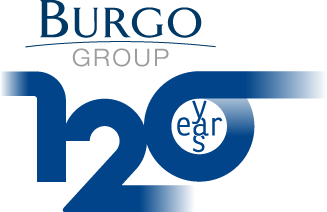A journey into the sustainability and traceability of Burgo production
The quality management system is a fundamental process that defines and traces all production steps. In parallel, product sustainability manages environmental product certifications, such as the Eco Labels or the Blue Angel, plant certifications, such as FSC or PEFC forest certifications, and the UNI EN standards certifications. The interview with Carlotta Priola, Sustainability Manager & Quality System Manager, takes us on an insightful journey, tracing the steps to sustainability and quality of Burgo Group's manufacturing processes and products.
What is the role of Product Sustainability and Quality System Management?
My work is divided into two macro areas: quality system management and product sustainability.
The quality management system has customer satisfaction as its ultimate goal. It requires setting up an organizational structure, defining processes to manage the activities that lead to the creation of products, defining written procedures that describe practices and responsibilities related to each activity, and finally reviewing all the processes. We do this through regular audits and then through review meetings.
In Burgo, the structure defined for the quality system incorporates central coordination that reports to me and units in each plant, where the managers refer to me.
The activity linked to what we call product sustainability is much more varied since it deals with environmental product certifications, such as the Eco Labels or the Blue Angels that we have obtained for some of our products, or plant certifications, such as the FSC or PEFC forest certifications or the UNI EN 15593 standard certification which is related to safety and hygiene for plants that produce paper for food contact.
Furthermore, we have environmental product assessments such as Paper Profile or Carbon Footprint. And then the individual product food contact certifications.
What are the main certifications of Burgo Group?
In addition to the Quality Management System certification according to the ISO 9001 standard, Burgo Group holds the certification of the environmental management system according to the ISO 14001 standard and the certification of the energy management system according to the ISO 50001 standard in all Burgo plants, while the process to certify also Mosaico plants is starting. In December 2021, the certification of the health and safety management system began at the Villorba plant.
Sustainability is a very important factor for Burgo Group.
All Burgo plants have been certified according to the standards that regulate quality and the environment.
Some plants also have EMAS management, which is an even more restrictive environmental standard. We have forest certifications, FSC and PEFC, in all group sites. We have numerous products with the Ecolabel certification, which is very restrictive in environmental terms. To obtain it, we must ensure that all the main environmental parameters of the plant, thus water, air, emissions into the atmosphere, waste management, and energy production, comply with the limits established by the ISPA and the Italian Ministry.
We followed the same procedure to obtain the Blue Angel certification, which is managed by the German authorities. This is a certification that we have recently obtained for a paper produced with 100% recycled fibres in the plants of Sora and Sarego.

Search and download the Group's international certifications.
How is the sustainability of Burgo products verified?
A crucial aspect of product sustainability is the definition of the Paper profile and the Carbon Footprint. Even if they are not certified documents for the moment, they are very relevant because often requested by the market.
The Paper profile is what I would describe as a paper’s environmental identity card, as it shows the composition of the paper, therefore the percentage of fibres that can be cellulose, wood pulp, or recycled fibres, the percentage of coating and other components, with all the environmental parameters related to the production of that specific paper.
The carbon footprint is a document that reports the CO2 emissions for the production of a specific type of paper.
To produce these documents we rely on the CEPI guidelines, which require investigating the so-called "ten toes".
These documents, even if they are not certified by an external body, are significant because often customers request CO2 Neutral paper, meaning that they wish to offset the emissions resulting from the production of paper, for example by participating in compensation projects such as reforestation projects, aid projects or environmental restoration projects in less industrialized areas of the world.
Regarding the certification for the food market, we must send the paper to independent laboratories that must be accredited and must guarantee the compliance of our papers with the main Italian or European regulations supervising these types of products. We do this for all the papers produced by Mosaico, which produces papers suitable for contact with food.
Why are FSC and PEFC certifications meaningful?
The process of obtaining these certifications is similar to that for system certifications, hence regulated by ISO standards. A crucial element is the purchase and management of fibrous raw materials, as we must ensure that these come from sustainably managed forests.
Therefore, Burgo Group has defined a supplying policy to guarantee that all suppliers guarantee the renewability, sustainability, and maintenance of the habitat of these forests.
In addition, Burgo has defined a forest management policy, so we are sure to buy wood and cellulose that always come from legal and non-controversial sources.
Thanks to the definition of these purchasing policies, Burgo favours suppliers certified FSC and PEFC.
Fibres must be certified when purchased to sell certified papers, as in 2021 the revenue of FSC and PEFC certified papers reached 75% of the total.
And since Burgo has a credit certification system, we must ensure that we always have a positive balance between the certified fibres purchased and the certified paper sold.

Burgo Group is working on the progressive fine-tuning of its supply chain.
What is the impact of the paper industry on deforestation?
A common assumption about the paper industry is that producing paper means cutting down trees. There are several studies on this topic: one study was commissioned by Two Sides, which is an international communication project that aims to give clear and truthful information on the paper and printing industry.
59% of the people interviewed were convinced that forests in Europe are decreasing. This is not true: studies have shown that forests in Europe are increasing by an area equal to about 1.5 million football pitches – every year. And this is also thanks to the European paper industry which, by using wood that comes from sustainably managed forests, contributes to the growth of trees in Europe. We can say that the number of trees planted is greater than the number of trees cut down.
Worldwide, only 11% of tree cutting is related to the paper industry, while about 50-60% is related to the energy market and about 30% to sawmills, therefore linked to the furniture market.
Another myth is that paper is simply considered waste to dispose of. This is not true: in recent years, the paper recycling rate has reached around 72% in Europe, which is very close to the theoretical maximum limit of 78%.
Last year we obtained the Blue Angel certification on a paper produced with 100% recycled fibres.
We have a big focus on quality and sustainability: these are vital, paramount aspects for Burgo Group.

